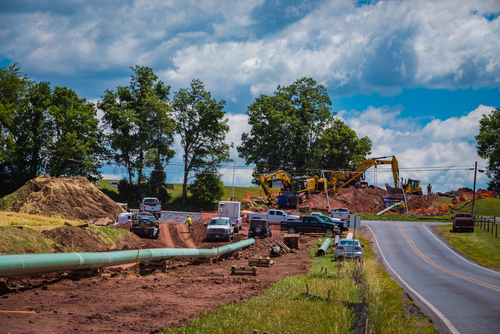
Pennsylvania Gov. Tom Wolf on Thursday proposed a $4.5 billion infrastructure plan that would be funded with a severance tax on natural gas drilling, an energy tax that business and industry leaders warned would hurt economic growth and put the state at a competitive disadvantage.
“It is far past time that Pennsylvanians stop allowing our commonwealth to be the only state losing out on the opportunity to reinvest in our communities,” Wolf said. “And as long as that is allowed to continue, my vision of a restored Pennsylvania that is ready to compete in the 21st century economy will never become reality.”
The plan, Restore Pennsylvania, outlines that funding generated from the severance tax over the next four years would be invested in high-impact projects throughout the Commonwealth to encourage Pennsylvania’s advancement in technology, development, and infrastructure. Projects identified by local stakeholders would be evaluated through a competitive process.
While Restore Pennsylvania has some bipartisan support in both the state House and Senate, members of the local natural gas industry are expressing concerns over additional energy taxes.
Pennsylvania Chamber of Business and Industry President and CEO Gene Barr said the plan overlooks the fact that the natural gas industry is already taxed through a competitive impact tax that has generated more than $1.5 billion.
“One of Pennsylvania’s greatest advantages is our affordable and accessible energy supply,” Barr said. “However, we are at risk of losing this competitive edge if state elected officials continue to look at higher energy taxes as a way to generate more revenue for government spending.”
In his statement, Barr said that instead of the increased energy tax, policymakers should focus on pro-growth economic policies, such as the Forge the Future initiative, which would bring more than 100,000 new jobs and a $2 billion increase in state tax revenues.
“While tax proponents call another tax on the natural gas industry ‘commonsense,’ to those in the position of determining where to extract the gas and create jobs, it would also be commonsense for them to decide to invest in other states in the shale play,” Barr said. “Simply put, an additional tax on the industry to pay for a bond that would fund many of the projects that the impact tax is already going towards will hurt Pennsylvania’s competitiveness and economic climate.”
Daniel Spigelmeyer, president of the Marcellus Shale Coalition, similarly stated that the existing tax on Pennsylvania’s natural gas resources, combined with other business taxes related to natural gas development, has provided nearly $5 billion in revenue since unconventional shale gas development began.
“Imposing additional energy taxes will cost consumers, hurt local jobs, especially among the building and labor trades, and negatively impact investment needed to safely produce clean and abundant energy that’s ushering in a new era of manufacturing growth,” Spigelmeyer said.
State Rep. Jake Wheatley (D-Allegheny), Democratic chairman of the House Finance Committee and one of the prime sponsors of the legislation with state Rep. Thomas Murt (R-Montgomery), said that such a revenue increase is difficult, but, in the end, it is a “reasonable severance tax, with exciting new ideas on how to maximize our investment.”
House Republican leaders, however, issued a statement echoing industry concerns around the negative impact a tax increase would have on Pennsylvania.
“The governor’s proposal includes three of the worst ways to grow an economy: taxing, borrowing and uncontrolled government spending,” the statement read. “While improving Pennsylvania’s aging infrastructure is a shared goal, it cannot come at the expense of the Commonwealth’s economy and taxpayers.”